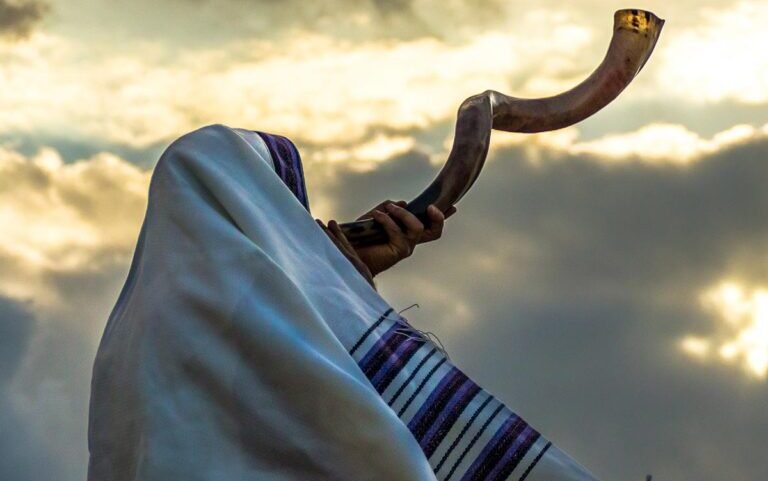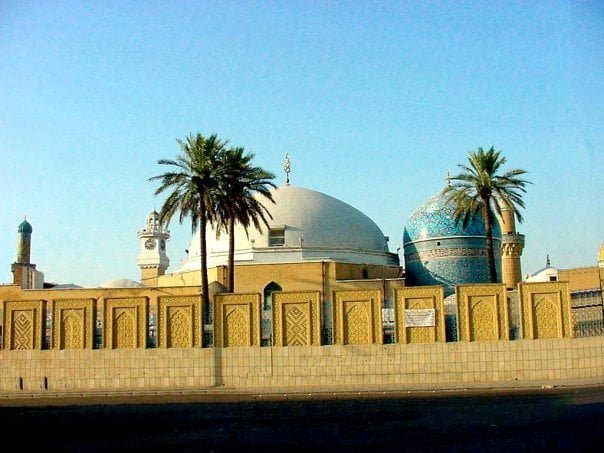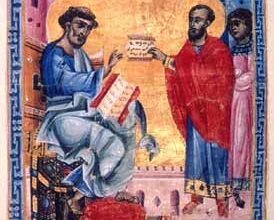The term Abrahamic religion groups together three of the major religions (Judaism, Christianity, and Islam) due to their historical coexistence and competition; it refers to Abraham, a character mentioned in the Hebrew Bible, the Christian Bible and the Quran, and is used to show the similarities between these religions and contrast them with Indian religions, Iranian religions and religions of Asia Eastern (although other religions and belief systems may also refer to Abraham).

Contents
ToggleAbrahamic religious festivals
Holidays of the month
October 2, 2024 (2 events)
October 2, 2024

Today, Catholics celebrate the Guardian Angels. Catholics erected altars to the guardian angels as early as the 4th century, and local celebrations of a feast in honor of the guardian angels date back to the 11th century. #mythology #myth #legend #calendar #2October #angesgardiens
October 2, 2024

Today, Jews celebrate Rosh Hashanah, the new year. The day before Rosh Hashanah is all about Torah study and repentance. Many prayers and festivities are planned for two days. #mythology #myth #legend #calendar #Judaism #rochhashanah #RoshHashanah
October 4, 2024 (1 event)
October 4, 2024

Today, Christians celebrate Saint Francis of Assisi, born Giovanni di Pietro Bernardone. Knight of Christ and Lady Poverty, Saint Francis is considered one of the greatest saints in the history of the Church. He is the first saint in History to receive the stigmata. #mythology #myth #legend #calendar #4October #FrançoisDAssise #Christianity
October 7, 2024 (1 event)
October 7, 2024

Today, Catholics celebrate Our Lady of the Rosary. It was established after the victory of Lepanto on October 7, 1571, a battle that united Spain, the Republic of Venice and the Papal States against the Ottoman invader, a victory that was attributed to the recitation of the rosary requested at the time by Pope Saint Pius V. #mythology #myth #legend #calendar #7October #ourlady #catholic
October 10, 2024 (1 event)
October 10, 2024

Today, Jews celebrate Yom Kippur (Yom Kippur). It is the holiest day in Judaism and includes many purification rites. #mythology #myth #legend #calendar #YomKippur
October 12, 2024 (1 event)
October 12, 2024

Today, Catholics in Brazil celebrate Our Lady of Aparecida. This clay figurine is considered the main patroness of Brazil. Legend has it that it was found by three fishermen who had exceptional fishing that day. #mythology #myth #legend #calendar #October 12 #Brazil #Aparecida
October 14, 2024 (1 event)
October 14, 2024

Today, Sufi Muslims commemorate the death of Hazrat Abdul Qadir Jilani, the founder of theQadiriah Sufi order. Celebrations include reading the Quran, holding milads, discussing the life of Hazrat Abdul Qadir Jilani, seeking blessings from God through du'a-munajat or supplications (individual and collective), and distribution of tabarruk (consecrated food), specially prepared for the occasion. #mythology #myth #legend #calendar #sufi #qadiriah #Persian #fatehaeyazdaham
October 18, 2024 (1 event)
October 18, 2024

Today, Christians celebrate Saint Luke. Luke, the Evangelist, is said to be the originator of the Acts of the Apostles in the New Testament. He is the patron saint of artists, doctors, surgeons, students and butchers. #mythology #myth #legend #calendar #18October #saintluc
October 21, 2024 (1 event)
October 21, 2024

Today, Catholics celebrate Saint Ursula, who died in 383. Her legend was born long after her death and varies from region to region. She is the patron saint of the city of Cologne and of orphans. #mythology #myth #legend #calendar #21October #saintsula
October 31, 2024 (2 events)
October 31, 2024

Today, the Cornish celebrate Allantide, Saint Allan. Some rites are worth a visit: the throwing of nuts into fires to predict the fidelity of partners, and the pouring of molten lead into cold water as a means of predicting the occupation of future husbands. #mythology #myth #legend #calendar #31October #allantide
October 31, 2024

celebrate Halloween (All Saints' Eve). This festival is steeped in the folklore of Samhain, the Celtic autumn festival marking the New Year. It was in the 8th century that the Church moved All Saints' Day to November 1st in order to erase the pagan celebration, however, pagan rites continued in European cultures. #mythology #myth #legend #calendar #October 31 #Halloween #All Saints’ Day
Cultural areas of Abrahamic religions
Jewish tradition claims that the twelve tribes of Israel are descended from Abraham through his son Isaac and his grandson Jacob, whose sons formed the nation of Israelites in Canaan; Islamic tradition claims that twelve Arab tribes known as the Ishmaelites are descended from Abraham through his son Ishmael in the Arabian Peninsula.
Christianity dates back to the 1st century as a sect of Judaism initially led by Jesus. His disciples considered him the Messiah, as in Peter's Confession; after his crucifixion and death, they came to view him as God incarnate, who had been resurrected and would return at the end of time to judge the living and the dead and create an eternal Kingdom of God.
In the 1st century AD, under the Apostles of Jesus of Nazareth; Christianity spread widely after being adopted by the Roman Empire as its state religion in the 4th century AD. The apostle Paul interpreted the role of Abraham differently from the Jews of his day. While to the Jews Abraham was seen as a loyal monotheist in a polytheistic environment, Paul celebrates Abraham as a man who found faith in God before adhering to religious law. Unlike Judaism, adherence to religious law is associated with idolatry.
Islam is based on the teachings of the Quran. Although it considers Muhammad to be the Seal of the Prophets, Islam teaches that every prophet preached Islam, since the word Islam literally means submission, the main concept preached by all prophets. Although the Quran is the central religious text of Islam, which Muslims believe to be a revelation from God, other Islamic books considered to be revealed by God before the Quran, mentioned by name in the Quran are:
* the Tawrat (Torah) revealed to the prophets. and messengers among the children of Israel (Bani Israil), the Zabur (Psalms) revealed to Dawud (David) and the Injil (the Gospel) revealed to Isa (Jesus). The Quran also mentions that God revealed the scrolls of Abraham and the scrolls of Moses.
The relationship between the Islamic and Hebrew scriptures and the New Testament differs significantly from the relationship between the New Testament and the Tanakh. While the New Testament draws heavily on the Tanakh and interprets its text in light of the foundations of the new religion, the Quran only alludes to various Tanakh stories and biblical writings, but remains independent of both, focusing on establishing a monotheistic message by using the stories of the prophets in a decentralized religious environment.
In the 7th century AD, Islam was founded by Muhammad in the Arabian Peninsula; it spread widely during the first Muslim conquests, shortly after his death. Islam understands its form of "Abrahamic monotheism" as preceding both Judaism and Christianity, and in contrast to Arab henotheism.










